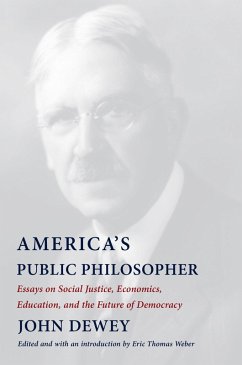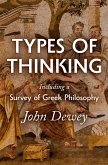John Dewey was America's greatest public philosopher. His work stands out for its remarkable breadth, and his deep commitment to democracy led him to courageous progressive stances on issues such as war, civil liberties, and racial, class, and gender inequalities. This book collects the clearest and most powerful of his public writings and shows how they continue to speak to the challenges we face today.
An introductory essay and short introductions to each of the texts discuss the current relevance and significance of Dewey's work and legacy. The book includes forty-six essays on topics such as democracy in the United States, political power, education, economic justice, science and society, and philosophy and culture. These essays inspire optimism for the possibility of a more humane public and political culture, in which citizens share in the pursuit of lifelong education through participation in democratic life. The essays in America's Public Philosopher reveal John Dewey as a powerful example for anyone seeking to address a wider audience and a much-needed voice for all readers in search of intellectual and moral leadership.
An introductory essay and short introductions to each of the texts discuss the current relevance and significance of Dewey's work and legacy. The book includes forty-six essays on topics such as democracy in the United States, political power, education, economic justice, science and society, and philosophy and culture. These essays inspire optimism for the possibility of a more humane public and political culture, in which citizens share in the pursuit of lifelong education through participation in democratic life. The essays in America's Public Philosopher reveal John Dewey as a powerful example for anyone seeking to address a wider audience and a much-needed voice for all readers in search of intellectual and moral leadership.
Dieser Download kann aus rechtlichen Gründen nur mit Rechnungsadresse in A, D ausgeliefert werden.









